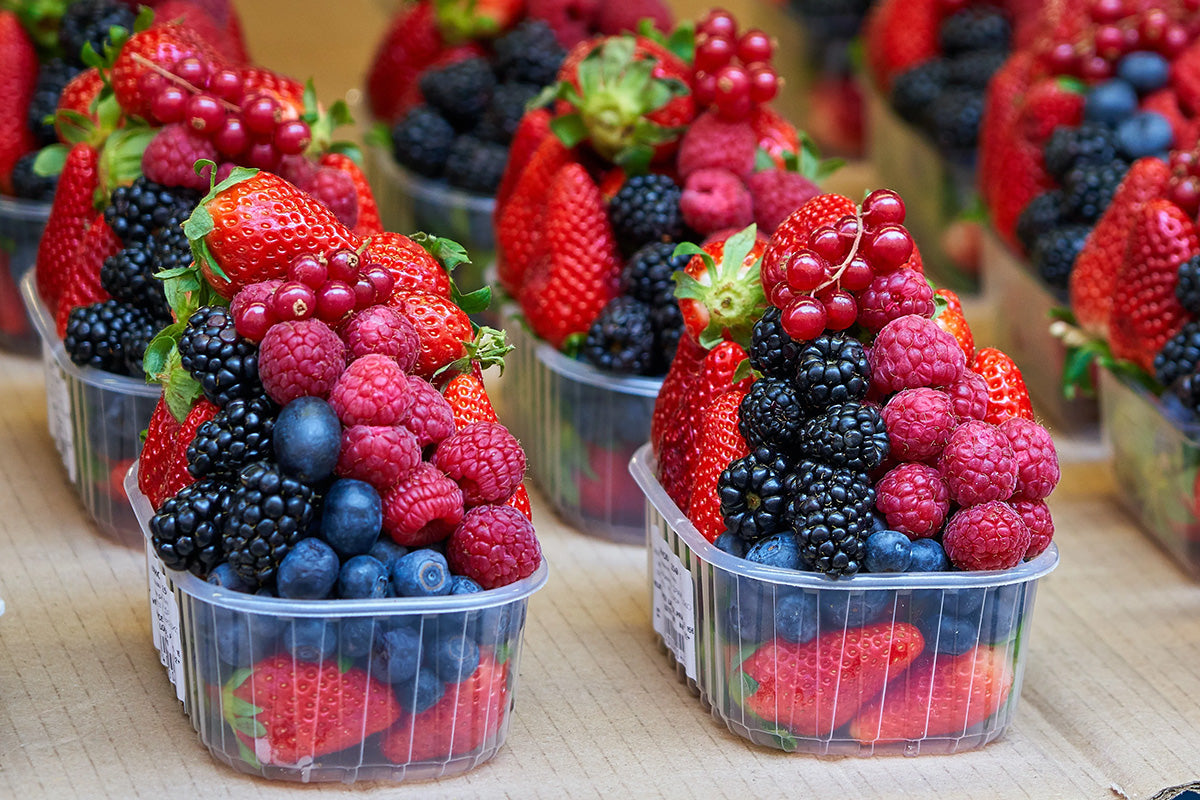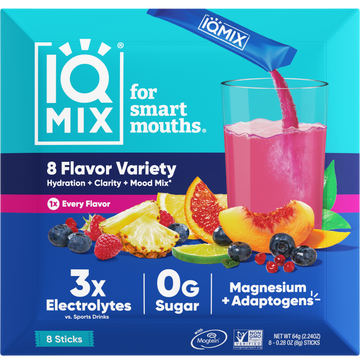Do you regularly find yourself feeling mentally foggy and unfocused? You could be experiencing brain fog.
Brain fog isn’t a medical condition, but rather a term used to describe a set of symptoms that can affect your ability to think clearly. You might feel like you’re literally in a fog; you can also feel sluggish and drained.
While there are a number of things you can do to fight brain fog, food is one of the most powerful tools. By adding certain natural foods to your diet, you can provide your brain with the nutrients it needs to think sharply and function optimally.
We’ll share the best foods for brain fog shortly, but first, let’s cover some basics.
What Causes Brain Fog?
Brain fog isn’t typically a stand-alone health issue, but a symptom linked to various underlying causes. Some of the most common causes of brain fog include:
- Hormonal shifts: Hormonal fluctuations, such as those that occur during pregnancy or menopause, can cause brain fog.
- Medical conditions: Certain health conditions, such as hypothyroidism, autoimmune diseases, and diabetes, can result in brain fog. Medications can also contribute.
- Viruses and infections: Brain fog can be a side effect of viruses and infections, and can sometimes persist even after the illness has resolved.
- Chronic stress: Chronic stress can lead to mental fatigue, which can cause brain fog.
- Lack of sleep: Not getting enough quality shut-eye is a major contributor to brain fog.
- Diet: A deficiency in certain vitamins, minerals, and nutrients can result in fatigue and fuzzy thinking.
The Best Natural Foods for Brain Fog
In this section, we’ll explore the best foods to eat to combat brain fog and how incorporating them into your diet can lead to improved brain power and a clearer mind.
#1: Salmon
When it comes to brain health, omega-3 fatty acids are essential. This healthy type of polyunsaturated fatty acid is found in abundance in salmon and has been shown to help fight brain fog.
In one study, those with chronic fatigue syndrome were shown to have less brain fog and fatigue after adding more omega-3s to their diet.[*]
In another study, children who ate fatty fish, like salmon, more frequently were found to sleep better, which translated to better energy the next day.[*]
To top it off, other research has shown that the omega-3s in fish can help stave off cognitive decline and even help reduce the risk of Alzheimer’s disease.[*]
Try this: Add pieces of cooked salmon to scrambled eggs or an omelet; wrap cooked asparagus in smoked salmon; toss pasta with salmon, olive oil, and minced chives.
#2: Flaxseed
If you’re not a fan of fish or you eat a vegan diet, flaxseed is a healthy, plant-based source of omega-3 fatty acids.
More specifically, flaxseed is a rich source of alpha linolenic acid (ALA)—a type of omega-3 fatty acid—which has been shown to support brain development and function.[*]
Try this: Add a couple tablespoons of flaxseed to a smoothie or sprinkle ground flaxseed over yogurt or oatmeal.
#3: Lion’s Mane Mushroom
Lion’s mane mushroom has a long history of use in Chinese medicine and is widely recognized for its potential brain benefits. It’s particularly well-known for its ability to boost nerve growth factor (NGF), which promotes the generation of new neurons and the growth, maintenance, and survival of existing neurons.[*][*][*]
This neuronal support appears to improve brain function. For example, one 2009 study found that when a group of Japanese men and women ages 50 to 80 consumed lion’s mane tablets for several weeks, they scored significantly higher in cognitive function tests compared to a control group.[*]
Lion’s mane cannot be found in your average grocery store. You can buy it online (or sometimes in health food stores) as a powder, capsules, or tincture. It can also be found in some health food products, like IQBAR and IQMIX.
Try this: Add the powder or tincture to smoothies or coffee; enjoy an IQBAR as a snack; mix a packet of IQMIX in a glass of water for a hydrating wellness boost.
#4: Avocados
Everyone’s favorite creamy fruit, the avocado, is an excellent brain health food. They’re high in magnesium and potassium, which help improve blood flow—and better blood flow means a healthier brain.
They’re also rich in a type of healthy fat called monounsaturated fat, which provides sustained energy throughout the day, and lutein, which has been shown to improve the ability to think.[*]
#5: Dark Leafy Greens
Green leafy veggies, such as collard greens, broccoli, kale, and spinach, contain a gold mine of nutrients that can help combat brain fog. These include vitamin C, vitamin K, iron, folate, and lutein. Leafy greens also contain nitrates, which improve blood flow throughout the body and brain.
One study even found that just one serving of leafy greens can help slow down age-related cognitive decline.[*]
Try this: Sauté leafy greens with olive oil and garlic; add greens to a fruity smoothie; finely chop greens and stir into pasta sauce.
#6: Dark Chocolate
Any dark chocolate lovers? You’re in luck! Not only is dark chocolate delicious, but it’s also brimming with antioxidants, particularly flavonols. Research has shown that cocoa flavonols can boost blood flow to the brain, improve cognitive function, enhance concentration, and stabilize mood.[*]
Try this: Add a small handful of cacao nibs to yogurt, oatmeal, or smoothies; stir dark cocoa powder into your morning coffee; enjoy a couple squares of dark chocolate (choose varieties with a cacao content of 70% or higher).
#7: Blueberries
Blueberries are rich in flavonoids, a group of phytonutrients (plant chemicals) found in various fruits, vegetables, teas, and other plant-based foods. They are responsible for the vibrant colors in many fruits and vegetables, such as the red in strawberries or the blue in blueberries.
These bioactive compounds enhance cognitive function by increasing blood flow to the brain and promoting better connectivity among neurons.[*][*][*][*][*] These changes have been associated with improvements in processing speed, executive function, working memory, and learning abilities.
Try this: Add blueberries to yogurt or whole-grain oatmeal; enjoy a Wild Blueberry or Lemon Blueberry IQBAR; add blueberries to a green smoothie.
Beat Brain Fog with Food
Brain fog can be a challenging symptom to live with, but incorporating the right foods into your diet can help tame it.
In addition to adding healthy foods to your diet, it’s also important to eliminate unhealthy foods that can add to your symptoms. Try to reduce or eliminate processed foods, sugary foods and drinks, fried foods, and alcohol.
It can help to keep healthy snacks and supplements, such as IQBAR and IQMIX, in your house or car, so you can easily reach for them when you need a boost. Choose from IQBAR flavors like Chocolate Sea Salt, Matcha Chai, and Lemon Blueberry (just to name a few!), and IQMIX flavors, including Lemon Lime, Blood Orange, Peach Mango, and Blueberry Pomegranate.
Start eating your way to a less foggy brain today!




